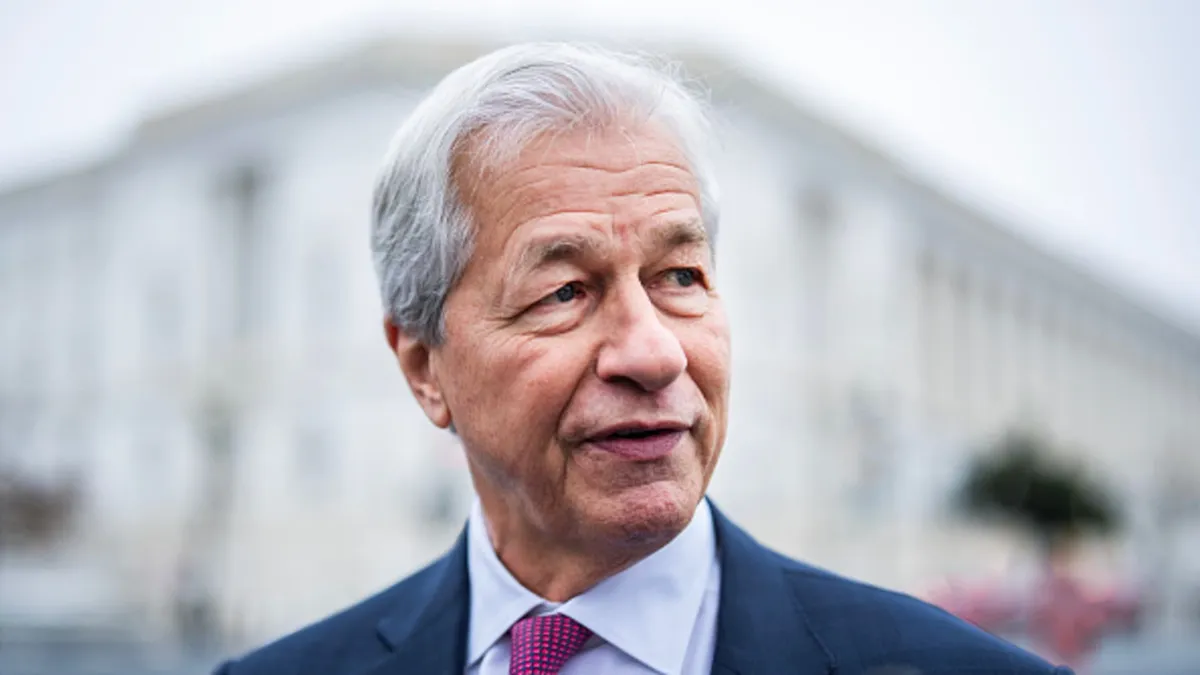
For years, American financial companies have been at odds with the Consumer Financial Protection Bureau (CFPB), the principal U.S. consumer finance watchdog. These institutions have consistently portrayed the CFPB as an illegitimate entity that unfairly targets industry players. However, the landscape is shifting dramatically. Following a stop-work order from the Trump administration, which resulted in the closure of the CFPB's headquarters, the agency now finds itself with an unexpected ally: the very banks that once complained about its regulations and enforcement actions under former director Rohit Chopra.
If the Trump administration's efforts succeed in reducing the CFPB to a mere shadow of its former self, banks will face stiff competition from non-bank financial players. This includes a range of entities, from big tech firms to payday lenders, that are subject to significantly less federal scrutiny compared to FDIC-insured institutions. David Silberman, a veteran banking attorney and lecturer at Yale Law School, emphasizes the importance of the CFPB, stating, "The CFPB is the only federal agency that supervises non-depository institutions." Without this oversight, payment applications like PayPal, Stripe, and Cash App could operate with minimal federal regulation.
The potential erosion of the CFPB’s authority could lead to a regression to pre-2008 financial conditions, where state officials bore the brunt of protecting consumers against non-bank providers. The CFPB was established in response to the financial crisis of 2008, which was fueled by irresponsible lending practices. Since its inception, digital financial players have gained significant traction. Notably, fintech companies like PayPal and Chime reportedly opened as many new accounts last year as all large and regional banks combined, according to data from Cornerstone Advisors. Silberman warns, "If you're the big banks, you certainly don't want a world in which the non-banks have much greater degrees of freedom and much less regulatory oversight than the banks do."
Currently, the CFPB and its staff are in a precarious position following the appointment of acting Director Russell Vought last month. Vought has implemented a series of directives affecting the agency’s 1,700 employees, including laying off approximately 200 workers and planning to eliminate around 800 supervision and enforcement positions. These drastic measures, outlined in internal communications from CFPB Chief Operating Officer Adam Martinez, threaten to cripple the agency's ability to fulfill its supervisory and enforcement responsibilities. Reports suggest that the agency could be left with as few as five employees, a move that even traditional critics like the Consumer Bankers Association (CBA) do not support.
Interestingly, bank executives have shifted from being antagonists of the CFPB to expressing concerns about the agency's potential dissolution. At a recent bankers' convention in New York, JPMorgan Chase CEO Jamie Dimon urged his colleagues to resist regulatory pressures. Previously, his bank indicated it might take legal action against the CFPB regarding its inquiry into the peer-to-peer payments network Zelle. Dimon stated, "We are suing our regulators over and over because things are becoming unfair and unjust," reflecting a growing consensus among banking leaders that dismantling the CFPB would be a mistake.
The CFPB's regulations would remain in effect, but without the agency's oversight, there would be no one to update these rules as the financial industry evolves. Industry advocates warn that small banks and credit unions, which have never been under the CFPB's purview, would face even greater disadvantages. They would now be subjected to the same regulatory scrutiny as larger banks, complicating their operations. An executive from a major U.S. bank highlighted that the conventional wisdom—that banks want the CFPB to vanish—is misguided. Instead, they seek "thoughtful policies that will support economic growth and maintain safety and soundness."
As the CFPB faces challenges, a senior CFPB lawyer remarked that the industry's alignment with Republican efforts could backfire. "They're about to live in a world in which the entire non-bank financial services industry is unregulated every day," he noted. This situation could lead to a financial landscape dominated by unregulated giants like Apple, PayPal, and Cash App, operating unchecked for years ahead. The implications for consumer protection could be profound, raising significant concerns about the future of financial regulation in America.